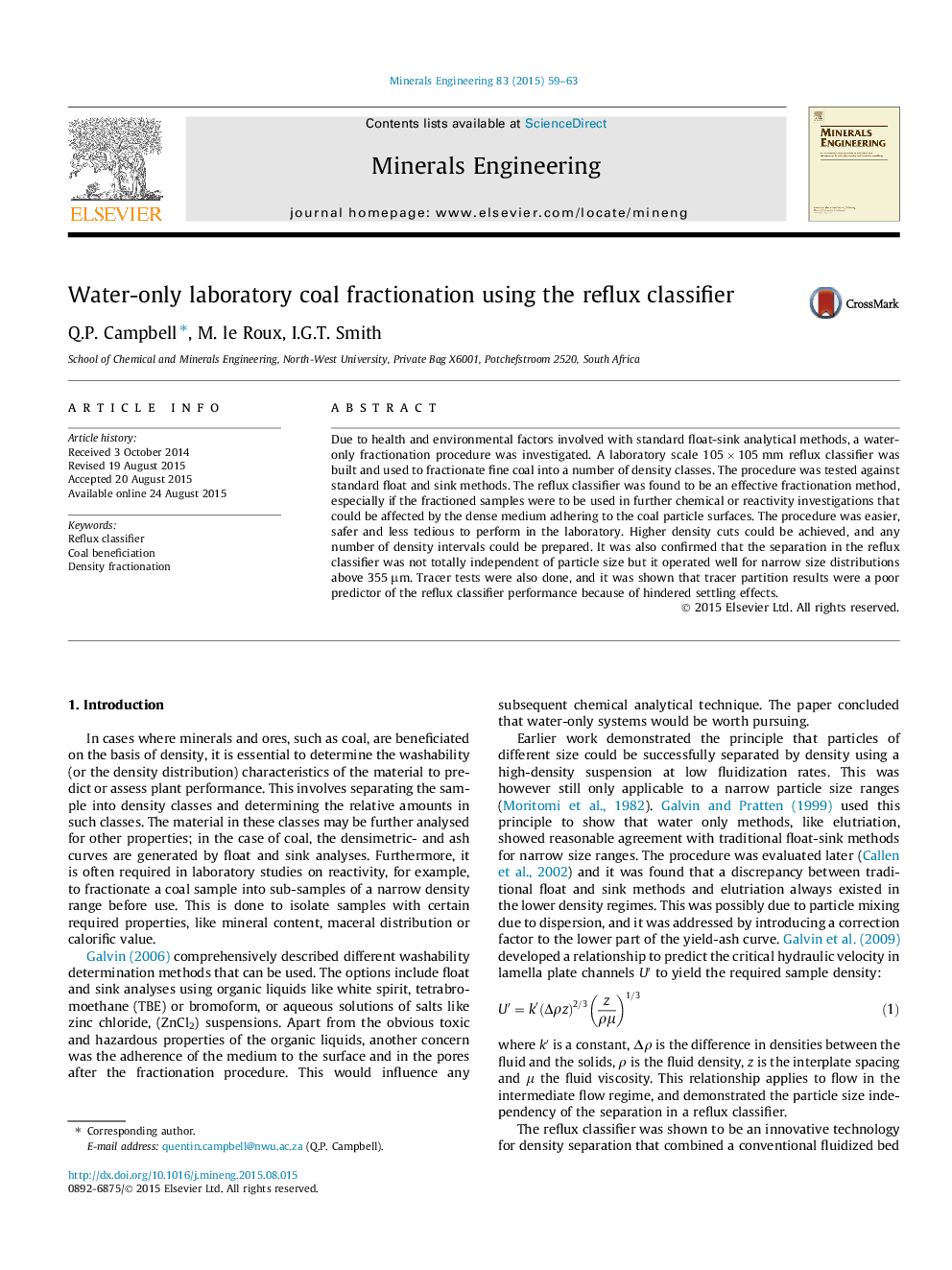| کد مقاله | کد نشریه | سال انتشار | مقاله انگلیسی | نسخه تمام متن |
|---|---|---|---|---|
| 232828 | 465308 | 2015 | 5 صفحه PDF | دانلود رایگان |
• Water-only density fractionation of coal has benefits over existing procedures.
• Water-only density fractionation is technically feasible using a laboratory scale reflux classifier.
• It is possible to predict and manipulate the produced densities from the fluidization flow rate.
• It is possible to produce larger samples within narrow density ranges.
• Narrow size ranges larger than 355 μm is preferred for better performance.
Due to health and environmental factors involved with standard float-sink analytical methods, a water-only fractionation procedure was investigated. A laboratory scale 105 × 105 mm reflux classifier was built and used to fractionate fine coal into a number of density classes. The procedure was tested against standard float and sink methods. The reflux classifier was found to be an effective fractionation method, especially if the fractioned samples were to be used in further chemical or reactivity investigations that could be affected by the dense medium adhering to the coal particle surfaces. The procedure was easier, safer and less tedious to perform in the laboratory. Higher density cuts could be achieved, and any number of density intervals could be prepared. It was also confirmed that the separation in the reflux classifier was not totally independent of particle size but it operated well for narrow size distributions above 355 μm. Tracer tests were also done, and it was shown that tracer partition results were a poor predictor of the reflux classifier performance because of hindered settling effects.
Journal: Minerals Engineering - Volume 83, November 2015, Pages 59–63
